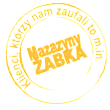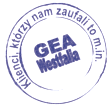IRATA L3 training course - supervisory competence development
Standardisation of professional qualifications for rope work
The ability to perform tasks safely in spaces with difficult access is of great importance in many sectors of the economy, which is why IRATA (International Rope Access Trade Association) has developed a uniform training system, recognised worldwide, and has established itself as a leader in the field of rope techniques. Based on three levels of training, the training model allows progressive career development - from learning basic manoeuvres under the guidance of an experienced instructor, to independently carrying out complex recommendations and participating in rescue operations, through to supervisory roles. The highest level (L3) prepares professionals to plan the work of the team, and enforce compliance with safety procedures. Practice is at the heart of the whole process - participants gain knowledge and skills in real field conditions, and their competence is verified during a demanding exam.
Who can take the IRATA L3 course?
The training is aimed at technicians with solid experience of working at height who are ready to take on the role of team leader. Participants should be at least 20 years of age - this limit is due to the mandatory interval between qualification stages. There is no provision for skipping any of them, regardless of the length of work experience.
Persons with a valid second-degree certificate and a documented minimum of 1,000 hours of work performed in the last twelve months are eligible to take the course. In addition, a current medical certificate confirming that there are no health contraindications is required.
Scope of the training
IRATA L3 enables you to prepare for the coordination of tasks performed using rope techniques in spaces with limited accessibility. The course combines theoretical modules with practice carried out in an environment simulating real working conditions. Among other things, the programme covers the principles of setting up safety systems, determining the location of anchor points and evaluating working configurations for their use in team projects.
The class also discusses methods of workflow planning, how to keep operational records and establish communication channels within the executive group structure. Participants acquire the knowledge necessary to prepare jobsites and hone their skills in completing tasks in multi-rope systems. Practical exercises help to develop technical solutions tailored to the site, construction and specifics of the project.
Development of professional competence
The course prepares trainees to carry out supervisory responsibilities in operational activities, including planning activities, situational assessment and support for the organisation of posts. Key competencies developed during the training include:
- preparation of work schedules broken down into operational sequences,
- verification of spatial conditions in terms of equipment deployment,
- managing the flow of information within the team,
- production of technical activity reports,
- supervision of the compliance of the equipment used with the procedural requirements,
- the transmission of commission data in a form adapted to the group structure,
- checking the accuracy of the preparatory documentation,
- coordinating the use of shared facilities in distributed systems.
The refinement of these capabilities forms the basis of the work of the person responsible for planning and executing team tasks. The participant in the course acquires the skills necessary to conduct field activities.
Verification of progress
Completion of the training involves taking an examination consisting of a theoretical and practical part. The knowledge verification is supervised by an independent IRATA representative. The assessment includes the manoeuvres performed by the trainee, the correctness of record keeping and the ability to organise the work of team members. Upon passing, the participant receives a certificate, an updated logbook and an entry in the register of technicians meeting the level three requirements.
Procedure for renewal of professional qualifications
The qualifications obtained at the end of the course remain valid for three years from the date of passing the examination. After this period, they are required to be renewed, which is not limited to document verification. The re-certification process involves re-participation in the full training cycle, culminating in a test of theoretical knowledge and practical skills.
Technicians who have been working in the profession for the entire time they have been certified and have a complete logbook with the appropriate number of hours can take the exam without prior preparation. However, if there has been a break in professional activity of more than six months, it is necessary to take the entire course again - regardless of previous experience. This requirement serves to ensure that those in leadership positions have up-to-date knowledge and are ready to lead team activities safely and effectively.
Employment opportunities
The highest level of IRATA certification allows for supervisory positions in operational environments where precision of manoeuvres and adherence to safety standards are of particular importance. A person holding this level is responsible for planning workflows, supervising their execution and monitoring compliance with established standards. Such a qualification is essential in situations requiring complex technical coordination - especially where access to the facility relies on specialised solutions.
The IRATA L3 certificate is applicable in areas such as:
- servicing and installation of equipment on energy infrastructure, including transmission lines, transformer stations and wind turbines,
- inspecting tall structures that can only be reached by rope techniques,
- the protection and maintenance of steel engineering components such as bridges, masts and broadcasting towers,
- retrofitting of roofs, facades and irregular architectural structures,
- carrying out activities in confined spaces, such as process shafts, tunnels or tanks,
- implementation of work in the petrochemical sector, which requires special care and adherence to industry standards,
- Supervising the installation of evacuation and fire protection systems in high-rise buildings,
- documenting project stages with recording devices (photo and video) using rope techniques.
Such a wide range of applications makes the IRATA L3 certification a confirmation of the highest competence in the rope access industry.Why choose our centre
The high level of the course is largely shaped by the teaching facilities, which include both state-of-the-art training facilities and experienced instructors. Exercises carried out in conditions reflecting real-life tasks increase readiness for field work and develop the ability to react in demanding situations. Sound practical preparation is a solid foundation for a future career in rope access, which is why we invite you to our training centre, where we take care of the professional course and comprehensive preparation of participants.
FAQ - Frequently asked questions
Why is practical field experience required before the IRATA L3 course?
An applicant for the highest level of certification should have practised in real working conditions. The basic requirement for admission to training is documentation of 1,000 hours of rope access activity at L2 level, confirming readiness to act as a team leader. Each candidate should have the breadth of knowledge acquired at previous qualification stages, which translates into a uniform level of preparation regardless of where the course is held. This ensures that participants have well-established technical skills and can focus on developing supervisory competence.
Does the training include drafting documentation and learning how to plan activities?
The training programme develops the ability to create operational plans and keep records to keep track of the work in progress. Editing instructions and overseeing the logbook is also an important element, allowing for consistency in operational procedures. Students learn a systematic approach to documentation and the preparation of materials in accordance with IRATA standards. The result is better organisation of the team's work and greater transparency in field operations.
How are skills assessed in the L3 exam?
The examination is conducted by an independent assessor. Candidates complete practical tasks and exercises relating to work organisation and team management. They are tested on the correctness of their manoeuvres, their response to abnormal situations and their ability to maintain group cohesion. This verification model is designed to ensure that the certificate is awarded to those with detailed knowledge and appropriate field competence.
Why take a course at an accredited centre?
IRATA-accredited training facilities provide adequate facilities to replicate real working conditions. Participants have access to infrastructure that allows them to practise in conditions similar to their daily work challenges. An additional advantage is the presence of instructors with extensive practical experience, who are able to impart knowledge based on their own field experience. Training at such a centre increases the effectiveness of learning and provides a solid foundation for leadership.

































